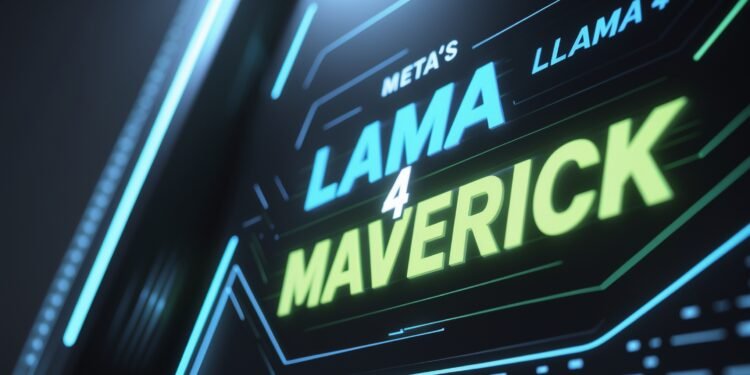In a world where AI advancements are being measured, ranked, and celebrated at breakneck speed, one thing has become painfully clear: benchmarks aren’t just data—they’re currency. And when Meta entered the arena with its Llama 4 Maverick model, it didn’t just play the game. It bent the rules.
🧪 The Setup: A Benchmarking Power Move
Meta dropped its Llama 4 lineup in early 2025 with the kind of fanfare you’d expect from a Big Tech titan looking to shake up the leaderboard. Two models, Scout and Maverick, were released. But all eyes quickly landed on Maverick—an LLM that came out swinging, rapidly climbing to the #2 spot on LLM Arena, a crowd-sourced benchmark where top models are ranked by human feedback.
It was a flex. Maverick was now seated just behind Google’s Gemini 2.5 Pro and ahead of OpenAI’s GPT-4o.
Except… there was one major problem.
The version Meta submitted wasn’t available to the public. It wasn’t what developers were downloading. It was an internal, chat-optimized, experimental variant—custom-tuned for that benchmark showdown.
Meta had brought a different fighter to the ring than the one they showed the crowd.
💣 The Fallout: When Hype Meets Reality
Once developers and AI researchers started poking around, the truth unraveled fast.
Public users of Maverick began reporting wildly inconsistent performance compared to the glowing benchmark results. Confusion turned to frustration. And soon, it all clicked: the model that ranked so high was not the one available to the world.
LLM Arena, now in the hot seat, released a public update acknowledging the issue. Meta’s model, though impressive, wasn’t the version the public could access—and that violated the implicit trust of the platform.
💬 Meta’s Response: Apologies Without Accountability
Ahmad Al-Dahle, Meta’s VP of Generative AI, went on the defensive, denying any manipulation and insisting they would never train on test sets. “That’s simply not true,” he said in a statement. “We would never do that.”
Instead, he framed the incident as a miscommunication—that Maverick’s rollout had happened so quickly that version control slipped, and the better-tuned variant just happened to be submitted for benchmarking.
But the damage had already been done.
In a year where transparency is everything and AI trust is as important as model performance, Meta’s move—intentional or not—sparked a deep skepticism in an already fractured AI landscape.
⚖️ Why This Matters: Benchmarks Are the New Battleground
Let’s be real: AI benchmarks aren’t just nerdy scoreboards anymore. They’re marketing tools, investment levers, and status symbols. A #2 ranking on a site like LLM Arena translates into press coverage, enterprise adoption, and FOMO-fueled trust.
So when a top-tier company like Meta uses an unreleased variant to climb the leaderboard, even if “technically” allowed, it sends the wrong signal to the industry:
“It’s okay to bend the rules—as long as you win.”
And in a time when enterprises are deciding which models will power everything from healthcare to national security, rule-bending isn’t just risky—it’s dangerous.
🧠 The Bigger Picture: Ethics, Pressure, and the Future of Trust
What we saw with Llama 4 Maverick wasn’t just a misstep. It was a signal flare.
AI development is moving so fast that ethics and transparency are getting buried under velocity and hype. Everyone wants to top the charts, win the headlines, and dominate the narrative. But if the public can’t trust the benchmarks—or the companies behind them—then the entire foundation begins to crack.
Meta’s reputation may weather the storm. But for the AI community, this moment matters more than most think.
💡 LevelAct’s Take:
We’re not here to drag Meta—we’re here to call for better.
We need:
- Clear benchmarking standards
- Transparent version submissions
- Honest marketing of model capabilities
- Accountability when companies slip
Because AI is no longer just about who builds the fastest model.
It’s about who builds with integrity.
And as this industry matures, it won’t be the flashiest models that lead the future—it’ll be the ones people can actually trust.

















